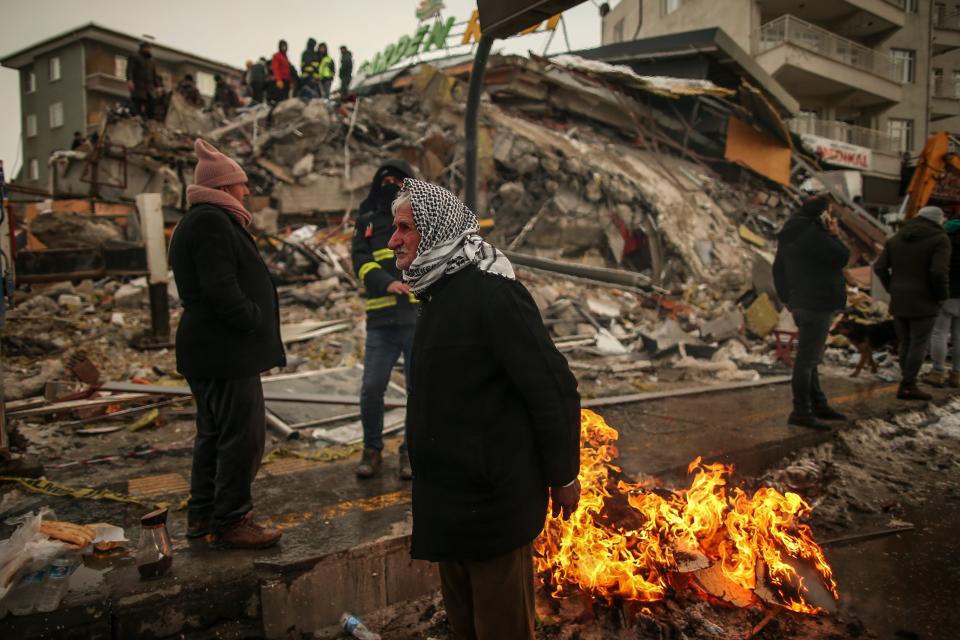Israeli rescue workers have deployed to Turkey — and may help in Syria. Here's why | Opinion
When an earthquake struck the Middle East on Monday morning, leaving significant casualties and destruction in its wake in Turkey and Syria, the smallest country in the region jumped in to not only offer its condolences but more importantly its state-of-the-art rescue capabilities, field medical personnel and assets to help its neighbors. Within hours of the initial incident, Israel’s first humanitarian aid delegation had arrived in Turkey, and more are scheduled to arrive in the coming days. While Israel is one of the smallest countries in the world, when it comes to humanitarian efforts, we’re one of the largest.
At the core of Israel’s health care system is the Talmudic verse, “Whoever saves a life, it is as if they have saved a world.” It is the reason Israel is almost always one of the first countries to offer humanitarian aid during and in locales of crisis, in conflict zones, and in other places where local rescue and health care infrastructure are overwhelmed or destroyed.
It is also the reason that as a country, we have built out our capabilities in both the government and private sectors to support these humanitarian missions. Over the years we have acquired or developed the necessary equipment to rapidly deploy field hospitals across the world within a matter of a few days, all with advanced capabilities to support multiple medical disciplines and specialties, and why we have invested in medical technologies that allow these hospitals to operate much like brick-and-mortar medical centers throughout the world.

The personnel joining these humanitarian efforts are leaders in their professional fields. They include doctors, nurses and paramedics serving in the medical branch, and engineers and other rescue workers who support the search and rescue efforts. They train together and ultimately, serve together when called upon. With short notice, they drop everything, hug their families goodbye and board the plane to work around the clock saving lives.
The initial steps include either supporting staffing at established hospitals or assembling a field hospital. Once they are ready to receive patients, they do so, triaging the appropriate patients to the appropriate “ward,” and ultimately the right physician for their case. If for whatever reason, a remote specialist consult is required, on-site team members coordinate with physicians in Israel to ensure the patient’s highest level of care.
By working in partnership with local rescue and health care providers, humanitarian delegation members can help to build capacity and strengthen the systems already in place in crisis-affected locales. This can help to ensure that services are sustainable and accessible to those who need them in the short and long term.
At Beilinson, one of Israel’s largest and most prominent medical centers, we are proud to be a leader in implementing innovative tools and treatments, which are important to assist in situations like this. Our doctors are on the ground and helping with the search and rescue efforts.
Regardless of the patient’s race, religion, political affiliation or a host nation’s position on international affairs, Israel’s rescuers provide care in some of the world's most difficult and challenging environments, including conflict zones and natural disasters, bringing a suite of capabilities at the medical and rescue levels. The moral obligation, to save lives wherever and whenever possible drives these heroes as they serve humanity in one of its pivotal moments. Godspeed to the men and women on the ground.
Eran Rotman MD, MHA, serves as the deputy director of Clalit’s Rabin Medical Center and director of Beilinson Hospital in Israel. Rotman is a senior lectureron Disaster Medicine at Bar Ilan University and has participated in humanitarian missions, most recently to Ukraine in 2022.
This article originally appeared on NorthJersey.com: Israeli rescue workers have deployed to Turkey — and may help in Syria

